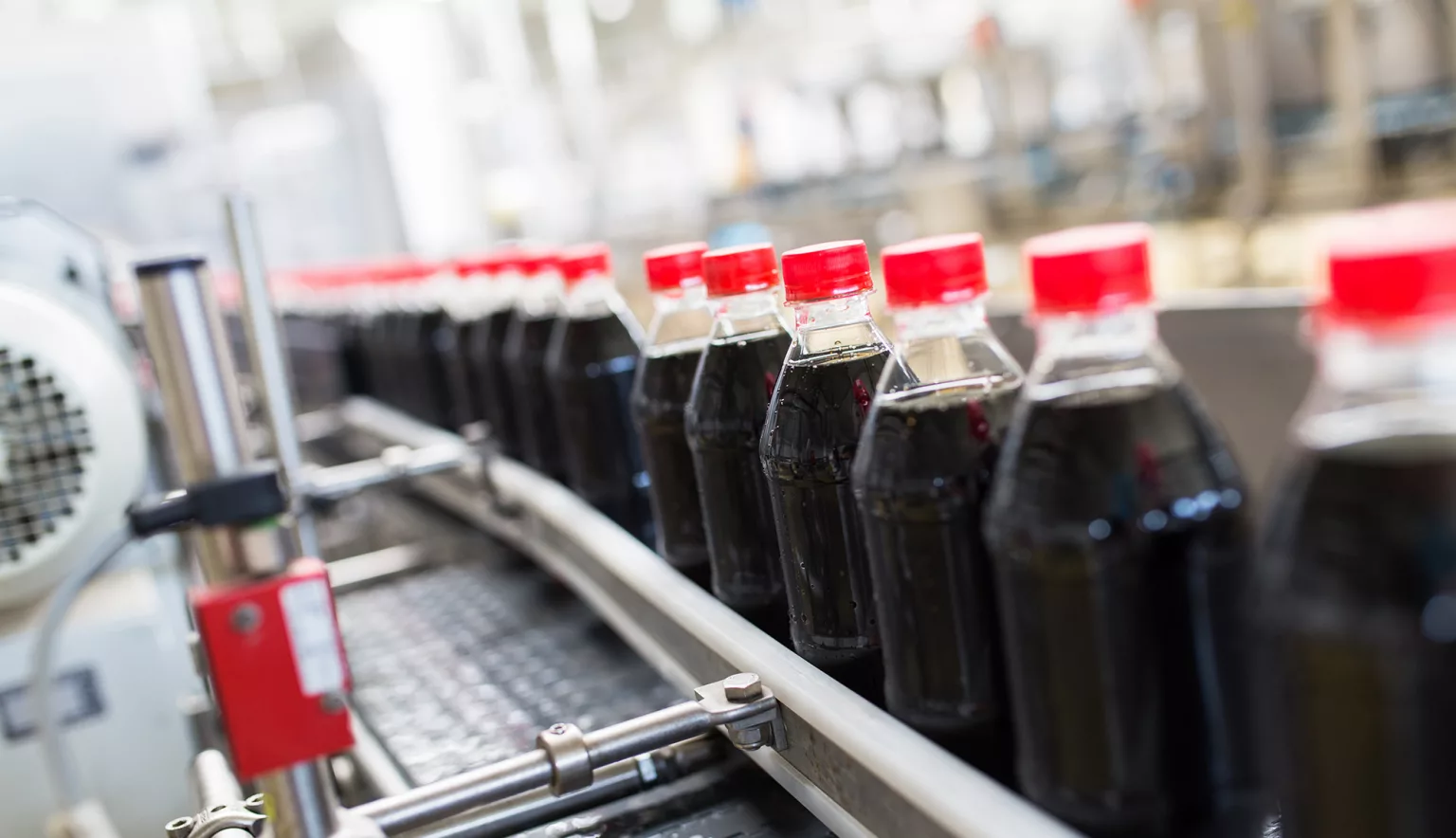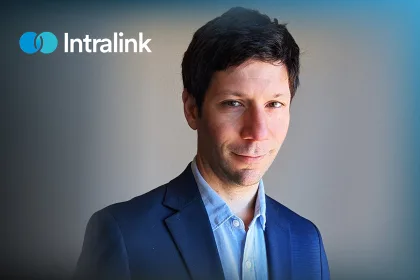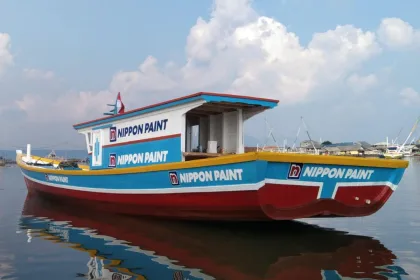Championing sustainability and circularity, the Australian Beverages Council (ABCL) is the peak body unifying Australia’s non-alcoholic beverage industry.
SPOTLIGHT ON THE AUSTRALIAN BEVERAGES COUNCIL LTD (ABCL)
In the Australian economy, the food and beverage sector is a major force. As the country’s largest manufacturing industry, the sector is a key national economic driver and source of employment. From small players specialising in niche items, the range of industry members escalates to vast multinationals offering fast-moving consumer goods (FMCG).
As a staple of Australian manufacturing, food and beverage is receiving renewed attention under the government’s Modern Manufacturing Strategy (MMS), launched in 2020, which aims to develop competition, scale, and resiliency on the global market backed by a $1.5 billion investment. Within MMS, the Australian government is supporting projects that will harness the sector’s strengths, leverage innovation to overcome barriers in value creation, and will effectively transform the industry by furthering its high-value and dynamic reputation.
Recycling and clean energy is another significant component of the MMS, that is being developed to work in harmony with operations across the food and beverage sector.
Currently, the segment of the beverage sector specialising in non-alcoholic drinks and soft drinks, is enjoying a boom as alcohol consumption levels are declining amongst the younger generation. Indeed, as reported by The Centre for Alcohol Policy Research at La Trobe University, the number of teetotal 18 to 24-year-old Australians has doubled within the past two decades. As this dynamic shifts, the production of carbonated soft drinks alone has grown to contribute approximately $4 billion to the Australian economy every single year.
THE AUSTRALIAN BEVERAGES COUNCIL LTD (ABCL)
Occupying the vanguard of this dynamic sector is the Australian Beverages Council Ltd (ABCL), as the sole peak body representing the non-alcoholic drinks industry. For over 70 years, the council has represented the interests and advocated for the innovation of this multi-billion-dollar industry.
Formerly known as the Australian Soft Drinks Association (ASDA) and headquartered in Waterloo, New South Wales (NSW), ABCL operates with the best interests of manufacturers, importers and distributors at heart. The products within ABCL’s remit vary from sports drinks to emerging beverages, and premium bottled water, catering to every lifestyle and occasion.
Consolidating a vast body of members, the ABCL membership base accounts for over 95 percent of the industry’s volume. Encompassing small, medium-sized, and large companies, collectively ABCL’s members employ over 46,000 people across the nation. Each year, these industry players contribute over $7 billion to the Australian economy.
ABCL is headed by a Board of Directors representing a diverse range of companies, with each director having been elected from the membership base by other members. As such, the Board structure reflects the association’s membership, and offers a constitution that provides representation for all sectors within the industry.
GOING GREEN
In recent years, ABCL has played a major role in leading the sector on sustainability issues and has been at the forefront of scheme design, development, rollout and review across the industry.
Demonstrating a commitment to the welfare of both the planet and its people, ABCL has been heavily involved in driving a sugar reduction pledge across the industry. Announced in June 2018, ABCL’s flagship pledge is making solid progress, and is well on its way to meeting the target of a 20 percent sugar reduction across the industry’s portfolio by 2025. In a progress report just last year, it was announced that a 12 percent sugar reduction had already been achieved.
With the well-being of consumers close to heart, ABCL boasts a dedicated water division in the Australian Bottled Water Institute (ABWI). ABWI stands as a proud steward of both the environment and this natual resource, ensuring that all bottled or packaged water is safely produced, sustainably sourced, and guarantees the highest quality to consumers.
As a responsible, environmentally conscious body, ABCL is a keen supporter of initiatives that foster domestic green jobs and keep waste from the ocean. It also champions the use of recyclable materials across the industry’s packaging, in recognition of its status as product stewards of the beverage containers produced.
This means prioritising resource recovery and recycling innovation through the establishment of reprocessing facilities, producer responsibility schemes and assuming an educational role to ensure that consumers are aware of how to properly dispose of their products.
STREAMLINING CIRCULARITY
As an extension of its commitments to recycling and the mitigation of environmental impact through landfill disposal and plastic pollution, ABCL is an active participant in driving Australia’s circular economy.
More from APAC Outlook
Working closely with both the Australian Government and as a member of the International Council of Beverage Associations, ABCL advocates for the greater efficiency of initiatives in this area. The council ensures member awareness of participating in and promoting container deposit schemes (CDS), the potential of constructing reprocessing facilities, and redesigning product packaging in line with Sustainable Packaging Guidelines.
ABCL is cognisant to the fact that for many smaller players in the beverages space, circularity may seem like a pipeline dream for those lacking the finance and resources. This particularly applies to the majority of its membership base, consisting of small and medium businesses where investments into circular manufacturing processes may impede growth, restrict innovation, and prohibit local job creation. As such, government assistance is needed to create a level playing field between recycled and virgin materials – without it, the National Packaging Target of 50 percent recycled content in packaging by 2025 will be out of reach for smaller beverage companies.
CDS have been introduced across several Australian states in a bid to transform the country’s waste and recycling industry. However, for ABCL and its members, there is room for improvement to this model of recycling. Players of the drinks industry are now lobbying for more materials to be included in CDS – such as wine and spirit bottles, and beverage caps – to increase their use.
Nevertheless, this remains the preferred means of container recycling, since it results in a clean material of superior quality, particularly compared to the contamination of such products when disposed of through a mixed recyclables stream.
Most recently, ABCL witnessed the latest development by Circular Plastics Australia with the unveiling of a cutting-edge PET recycling facility in Albury, NSW. With the capacity to process one billion PET bottles per year to be reinvented into new recycled bottles, the plant is the result of a joint venture between major players on the global industrial stage, including Cleanaway Waste Management, Pact Group Holdings Ltd, Asahi Beverages, and Coca-Cola Europacific Partners.
For all industry players, this latest development is a major breakthrough in terms of both green job creation, but also making Australia’s dream of a circular economy, one step closer to a reality.
































